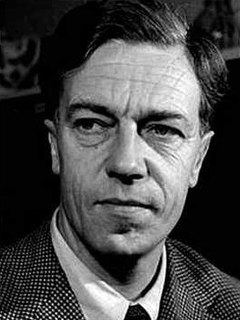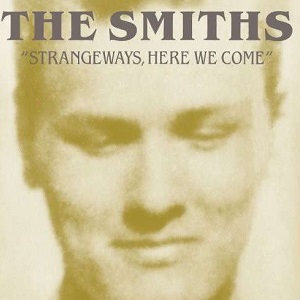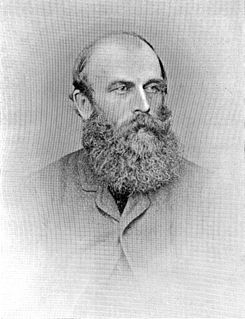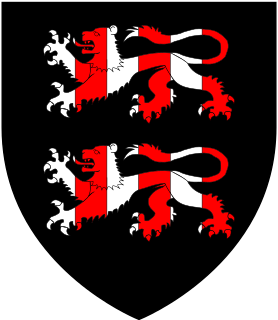This page is based on this
Wikipedia article Text is available under the
CC BY-SA 4.0 license; additional terms may apply.
Images, videos and audio are available under their respective licenses.

Operation Fortitude was the code name for a World War II military deception employed by the Allied nations as part of an overall deception strategy during the build-up to the 1944 Normandy landings. Fortitude was divided into two sub-plans, North and South, with the aim of misleading the German high command as to the location of the invasion.

Cecil Day-Lewis, often writing as C. Day-Lewis, was an Anglo-Irish poet and the Poet Laureate of the United Kingdom from 1968 until his death in 1972. He also wrote mystery stories under the pseudonym of Nicholas Blake.

Strangeways, Here We Come is the fourth and final studio album by English rock band the Smiths. Released on 28 September 1987 by Rough Trade Records, it reached number two on the UK Albums Chart, staying in the chart for 17 weeks. All of the songs were composed by Johnny Marr, with lyrics written and sung by Morrissey. The album was certified gold by the British Phonographic Industry on 1 October 1987 and also by the Recording Industry Association of America on 19 September 1990.

HM Prison Manchester is a high-security men's prison in Manchester, England, operated by Her Majesty's Prison Service. It is still commonly referred to as Strangeways, which was its former official name derived from the area in which it is located, until it was rebuilt following a major riot in 1990.
Strange Ways is an independent record label from Hamburg, Germany.

"I Started Something I Couldn't Finish" is a song by the English rock band the Smiths. Released in November 1987, it reached No. 23 in the UK Singles Chart. It was the second of three UK singles from the band's fourth and final studio album, Strangeways, Here We Come, and was released after the band had announced their split.

Dr Dame Honor Bridget Fell, DBE, PhD, DSc, FRS was a British scientist and zoologist. Her contributions to science included the development of experimental methods in organ culture, tissue culture, and cell biology.

Smoke on the Water is a compilation album by the British hard rock band Deep Purple, released in 1998.
Andy Strangeway is a councillor, decorator, adventurer and islomaniac from the Yorkshire Wolds, is the first – and so far the only – person to complete the challenge of landing and sleeping on all 162 of Scotland's islands of 40 hectares and above. One definition of an island is that used by Hamish Haswell-Smith in his book The Scottish Islands first published by Canongate in 1999. This list excludes bridged islands such as Skye and tidal islands such as Oronsay that are much larger than 40 hectares. Strangeway's definition is simply "a piece of land surrounded by sea that you can't walk to".

The Moonraker is a British swashbuckler film made in 1957 and released in 1958 and set in the English Civil War. It was directed by David MacDonald and starred George Baker, Sylvia Syms, Marius Goring, Gary Raymond, Peter Arne, John Le Mesurier and Patrick Troughton.
Nicholas Edward Day, CBE, FRS is a retired statistician and cancer epidemiologist.
Poppies of Flanders is a 1927 British drama film directed by Arthur Maude and starring Jameson Thomas, Eve Gray and Henry Vibart. It was based on a novel by Herman C. McNeile.

A Daughter of Eve is a 1919 British silent crime film directed by Walter West and starring Violet Hopson, Stewart Rome and Cameron Carr. Ronald Colman made an early screen appearance. The film is now considered a lost film.
Ops (B) was an Allied military deception planning department, based in the United Kingdom, during the Second World War. It was set up under Colonel Jervis-Read in April 1943 as a department of Chief of Staff to the Supreme Allied Commander (COSSAC), an operational planning department with a focus on western Europe. That year, Allied high command had decided that the main Allied thrust would be in southern Europe, and Ops (B) was tasked with tying down German forces on the west coast in general, and drawing out the Luftwaffe in particular.

R Force was a British deception force during World War II that consisted of armoured vehicles, field engineers and a wireless unit. During Operation Fortitude it attempted to exaggerate the strength of Allied forces in Britain, and deceive German intelligence about Allied intentions. Later it performed a similar role during the fighting in Western Europe in 1944–45. It was commanded by Lieutenant Colonel David Strangeways.
Twin Faces, also known as Press Button B, is a 1937 British crime film directed by Lawrence Huntington and starring Anthony Ireland, Francesca Bahrle and Frank Birch. The film was made at Highbury Studios as a quota quickie for release by the Hollywood studio Paramount Pictures.

Strangeways Research Laboratory is a research institution in Cambridge, United Kingdom. It was founded by Thomas Strangeways in 1905 as the Cambridge Research Hospital and acquired its current name in 1928. Organised as an independent charity, it was historically funded primarily by the Medical Research Council and is currently managed by the University of Cambridge, also its sole trustee. Formerly a site of research on rheumatic arthritis and connective tissue disorders, it has since 1997 focused on the study of genetic epidemiology.











